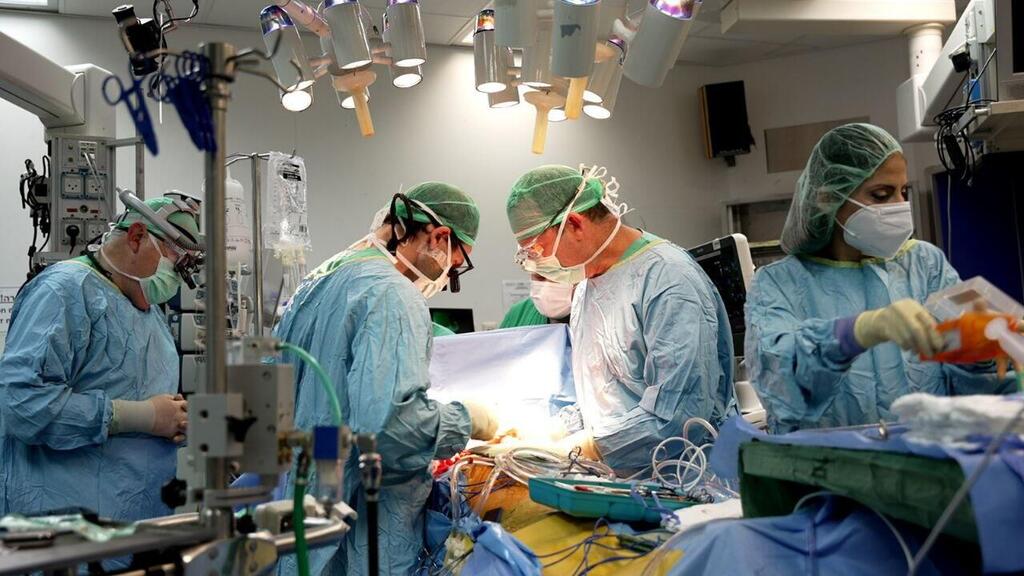Getting your Trinity Audio player ready...
Israel has seen a noticeable increase in organ and tissue donations since the outbreak of the war on October 7, both among the general public and families of fallen soldiers. The consent rate for donation has reached 85%, compared to about 60% in recent years.
More stories:
The wartime has also brought an unprecedented number of tissue donations, mostly from soldiers who fell in battle, according to the annual report of Israel's National Transplant Center published on Sunday.
The annual number of Israelis who signed up for an organ transplant card doubled in 2023, reaching a record of 39,000 individuals. Currently, over a million and 70,000 Israelis have signed up for the card. Some 147 patients gained priority for transplantation last year due to their early signature on the organ transplant card.
The number of families who consented to have their loved one’s organs donated after death saw a slight increase as well – with 107 compared to 102 year-on-year. As mentioned, there was a noticeable increase in this number during the months of the war in Gaza.
Some 636 transplant surgeries from deceased and living donors were performed last year, compared to 656 in 2022. The list of Israelis waiting for transplantation has grown over the years, with 1,412 individuals waiting for a transplant this year compared to 1,340 in 2023 and less than 1,300 in 2022.
Overall, the number of transplant surgeries in Israel remained stable. There was a slight decrease in kidney transplants from living donors – with 297 in 2023 compared to 319 the previous year.
In contrast, the number of liver transplants from living donors has doubled: 16 compared to seven in the previous year.
As mentioned, there has been a significant rise in tissue donation in Israel, mainly attributed to the war in Gaza. For example, the number of corneas transplanted reached 1,167 compared to 993 year-on-tear.
Bone and tendon donations increased from four in 2022 to 44 in 2023. Heart valve and blood vessel donations increased from 40 to 70 within a year. Skin donations also rose sharply from 33 to 86.
Corneas are used for corneal transplants, skin for treating burns, bone grafts for orthopedic injuries, including injuries sustained during the fighting, and preparing an amputated limb for fitting a prosthetic.
Heart valve donations are used to replace valves in patients suffering from congenital heart defects and conditions. All tissues, except corneas, undergo processing procedures and are preserved in a bank until used. The usability period for corneas is very limited.
Prof. Rafael Beyar, chair of the National Transplant Center’s steering committee, said, "The past year is similar in its achievements to the previous one. Since October 7, we saw very a busy and intensive period.”
“Many hospital staff members enlisted for reserve duty, others were required to fill in for busy departments, yet the transplantation teams fulfilled the tasks and all transplants were carried out on schedule and under the required conditions,” he added.





